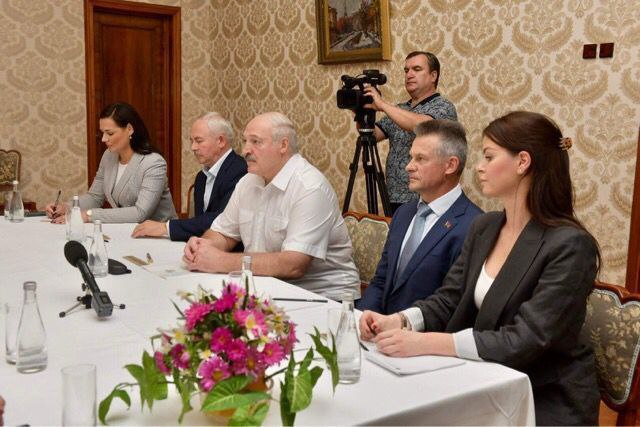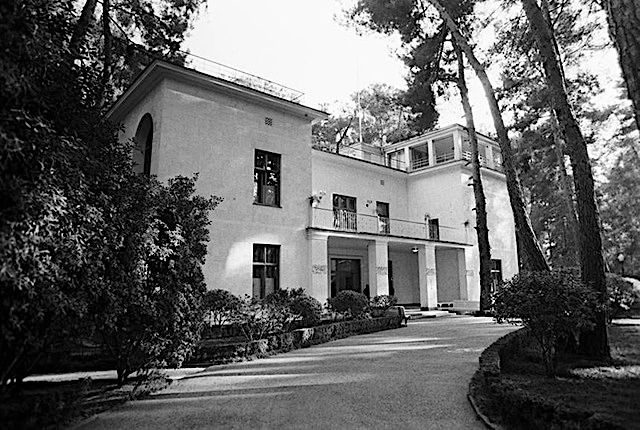"Lukashenko strengthens relations with Abkhazia, but does not want to recognize it" - commentary
Lukashenko’s visit to Abkhazia
President of Belarus Alexander Lukashenko said that he made a surprise visit to Abkhazia on September 28 in order to strengthen relations therewith. But it is not expected that he plans to recognize it as an independent country, which would be very desirable in Abkhazia.
What could Lukashenko’s visit to Abkhazia mean? Below are the four most popular theories.
The independence of Abkhazia was recognized by Russia in 2008 as a result of the “August”, or “five-day” Georgian-Russian war over South Ossetia. Abkhazia was recognized as an independent country by Nicaragua, Venezuela, Nauru and Syria. Tbilisi and the rest of the international community consider Abkhazia to be part of Georgia.
- About the properties which Russia wants from Abkhazia – Commentary
- What Belarus special representative’s visit to Abkhazia could mean for its recognition by Minsk
- “Nostalgia for the Soviet past” – Why the Abkhaz authorities go against society. Opinion
- Is Russian language discriminated against in Abkhazia? Op-ed
Lukashenka’s visit to Abkhazia was not announced in advance. But the day before, Abkhazian state media were told that “tomorrow there will be good news.”
His visit became known only when the state news agency “aAsnypress” distributed a video from the Pitsunda estate, where Lukashenko’s motorcade arrived to meet President of Abkhazia Aslan Bzhaniya.
But according to sources in the presidential administration of Abkhazia, the visit was not spontaneous; it had been in the works for several months.
The meeting took place in Pitsunda, an estate whose full ownership has been demanded by Russia, which has caused ongoing large-scale protests in Abkhazia.
“Yesterday we discussed the problems of Abkhazia with our elder brother Vladimir Vladimirovich Putin. We discussed these issues well into the night, and came to the same conclusion – that Abkhazia should not be abandoned. It needs help so that this flourishing land, the people who live here, live normally,” Alexander Lukashenko said during a meeting with the leadership of Abkhazia.
He emphasized that his arrival is not connected with any special situation, and he “is not pursuing any geopolitics”:
“We are just like you, a peaceful, kind, hardworking people, and we want to live in harmony. And economic ties should become the foundation of our relations.”
- Abkhazia supports free transport of goods despite unresolved Georgian-Abkhaz conflict
- Russia demanding the Pitsunda estate. Why is Tbilisi silent?
- Georgian-Abkhaz war, 1992-1993
Four theories
1. Is Belarus preparing to recognize Abkhazia?
It is very important for Abkhazia to have Belarus on the list of UN member states that have recognized its independence. But Lukashenko is clearly not going to do this, at least for now. He knows that such a decision can only be made in the Kremlin, which he would then support.
This topic has been on Belarus’ foreign policy agenda since Russia recognized the independence of Abkhazia and South Ossetia in 2008.
Lukashenko almost immediately announced that he was ready to do this if Vladimir Putin personally asked him. Putin has not.
Several years have passed, and the president of Belarus himself was asked.
“Recognition of Abkhazian and South Ossetian independence by Belarus would lead to serious economic sanctions from the US and the European Union. If Moscow guarantees to compensate losses, then Minsk is ready to take that step,” as he said in 2017.
The Kremlin was not ready to give any guarantee, which Lukashenko seems to have understood. Minsk is at the moment stepping on the pedal of a multi-vector foreign policy, trying to improve its relations with the West.
In March 2018, Lukashenko paid a visit to Tbilisi, where he unequivocally stated that he “respects the territorial integrity of Georgia.” He laid flowers at the memorial to heroes who died for the unity of Georgia.
The “multi-vector” period ended for Lukashenko in 2020 when his re-election to another presidential term sparked large-scale protests in Belarus. The West then unanimously considered his victory in the elections illegitimate.
And in February 24, 2022 there was the beginning of the Russian “special operation in Ukraine,” which Minsk supports unconditionally.
Alexander Lukashenko no longer has any illusions even in the long term of improving relations with the West.
2.Recognition in exchange for Pitsunda
Perhaps Moscow has suggested Belarus recognize the independence of Abkhazia in exchange for the Pitsunda estate and nature preserve which, according to Bzhaniya, Putin wants for himself.
3.Russia is preparing the USSR-2
Moscow may want Belarus to recognize Abkhazian independence so that Abkhazia will be accepted into the Union State of the Russian Federation and the Republic of Belarus.
Recognition of Abkhazia by Minsk would mean an automatic break in relations with Tbilisi. But a possible revision of the format of the Union State of the Russian Federation and the Republic of Belarus that has developed over the past quarter century is a much more serious consequence for Lukashenko.
Recently, both Russian and Abkhaz politicians have talked about the admission of Abkhazia to the Union State. Even small Abkhazia can become a threat to the existing balance between Moscow and Minsk.
Lukashenko, not without reason, is certainly afraid of this process. Moreover, such discussions are also being held regarding Armenia.
The expansion of the existing Union State at the expense of new members would actually lead to the de facto reconstruction of the USSR.
And Lukashenko is not ready for that.
4.Belarus really wants to establish open economic ties with Abkhazia
Previously this was “not worth the trouble”, but now hemmed in by sanctions, Minsk could reap some benefit.



Lukashenko’s visit to Abkhazia




















